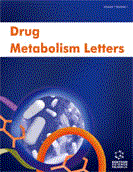Abstract
Objective: The selective Janus kinase 1 inhibitor filgotinib (GLPG0634), which is currently in clinical development for the treatment of rheumatoid arthritis (RA) and Crohn’s disease, demonstrated encouraging safety and efficacy profiles in RA patients after 4 weeks of daily dosing. As RA patients might be treated with multiple medications simultaneously, possible drug-drug interactions of filgotinib with cytochrome P450 enzymes and with key drug transporters were evaluated in vitro and in clinical studies.
Methods: The enzymes involved in filgotinib’s metabolism and the potential interactions of the parent and its active major metabolite with drug-metabolizing enzymes and drug transporters, were identified using recombinant enzymes, human microsomes, and cell systems. Furthermore, filgotinib’s interaction potential with CYP3A4 was examined in an open-label study in healthy volunteers, which evaluated the impact of filgotinib co-administration on the CYP3A4-sensitive substrate midazolam. The potential interaction with the common RA drug methotrexate was investigated in a clinical study in RA patients.
Results: In vitro, filgotinib and its active metabolite at clinically relevant concentrations did not interact with cytochrome P450 enzymes and uridine 5’-diphospho-glucuronosyltransferases, and did not inhibit key drug transporters. In the clinic, a lack of relevant pharmacokinetic drug interactions by filgotinib and its active metabolite with substrates of CYP3A4, as well as with organic anion transporters involved in methotrexate elimination were found.
Conclusion: the collective in vivo and in vitro data on drug-metabolizing enzymes and on key drug transporters, support co-administration of filgotinib with commonly used RA drugs to patients without the need for dose adjustments.
Keywords: Carboxylesterases, CYP450, drug-drug interaction, drug transporters, filgotinib, selective JAK1.
Graphical Abstract
 67
67










